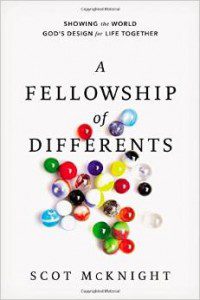From David Croteau, and his address can be found at the bottom of this post. Pastors and leaders of local churches have focused on tithing, in part because it is measurable and a good lever, but one must wonder why the NT never brings up the tithe. Is it because the NT knows that tithing was a very exclusive kind of offering? Here’s a good set of ideas and proposals and responses to issues surrounding those who propose tithing today.
The Post-Tithing View: Preventing Robbery, Not Endorsing It
In nearly every church I’ve been to, eventually they come around to collect the tithes and offerings. But have you ever thought of what it means to tithe after the cross? That is, in this “post-tithing” era. Is there such a thing? I believe that the standard of giving for Christians is not the typical “10 percent of income,” but a totally different paradigm. The concepts of giving in the New Testament are not a lowering nor a raising of the standard, but the transformation of that standard in consideration of the gift Christ has blessed us with.
What do you believe about tithing?
When I published my first book on the topic in 2010, the subtitle referred to “post-tithe giving.” I noticed that Scot McKnight used the term “post-tithing” in a blog post in January. I was pleasantly surprised for I had never heard someone else use that term. Why use this phrase you ask?
First, the typical term given for the alternative view that Christians are required to give 10 percent of their income to their local church is “grace giving,” a phrase used by Christians like Lewis Sperry Chafer, Ray Stedman, and John MacArthur. However, in recent years pro-tithing advocates have redefined that term saying that Christians should be giving 10 percent, then they would encourage the “grace giving” concept as an extra offering. Therefore, using that expression — grace giving — now could be confusing since it has been imputed with new meaning.
Second, there’s a common misconception that the Mosaic Law defined the tithe as giving 10 percent of a person’s income. They actually gave about 23 1/3 percent of their produce from the land and cattle. Now, I have no problem with someone giving 10 percent of their income. I think for some people 10 percent might be a very appropriate application of the principles for giving outline in Scripture.
Third, the prefix “post” means “after” or “subsequent to.” So does my view make someone an “anti-tithing” promoter? Sort of, if you plan to put your grain, tomatoes, sheep, and oil in the offering plate on Sunday morning. I think it could get quite messy and, to tell the truth, I don’t think that’s what our pastors need to run the church. The Levites needed it during the Old Testament times. The tithe was part of the Old Covenant which has been fulfilled by Christ. So, what is expected after the fulfillment of the Old Covenant?
I love the idea that the New Testament promotes principles that are building off of the Old Testament commands. I don’t see much discarding of the Old Testament in the New Testament, but more of a digging under and building off of.
You may say: “Well, isn’t giving 10 percent of my income a good idea?” It could be, all depending upon the specifics of your financial situation. But I have a suspicion that John Piper’s thought might apply to many of us:
“My conviction is that most middle and upper class Americans who merely tithe are robbing God.” ~ John Piper (who, in contrast to me, appears to believe in a tithing mandate)
One of my concerns is that this is true of many American Christians. The most common verse used to advocate tithing for Christians is Malachi 3. Many preachers that say that when a Christian fails to give 10 percent of their income to their local church they are robbing God, so people adhere to this 10 percent rule and give 10 percent. No more. No less.
Since the standard has been transformed, we need to reconsider giving. When well-off Christians reflect deeply on the biblical principles for giving, they find that giving 10 percent of their income is woefully short of what God desires of them. We rob ourselves of opportunities when we limit ourselves to only 10 percent. The driving forces underlying all giving should be the grace of God, our relationship with our God, and love (for God and for others). This is the “post-tithing” concept. When we dwell on specific details involved in giving (such as who, when, where, etc.) we can rightly evaluate our motivations, our attitude, and our thankfulness or lack of thereof. If we are giving grudgingly instead of cheerfully, we have missed God’s best for us. The legalistic mindset of the enchanted 10 percent rule hinders our unity with one another and intimacy with God. We are able to worship unconstrained when we are willing to sacrifice absolutely everything to bring Him glory, honor, and praise. Indeed, our treasure is where our heart is.
Charles Ryrie was a professor at Dallas Theological Seminary and editor of the popular Ryrie Study Bible. His warning should be heeded: be careful of settling for 10 percent because you could easily get stuck in a 10 percent rut. It is so easy to give 10 percent, that if you think, because of previous teaching, that giving 10 percent at least gets you to the place where you are “okay with God,” then you’ll never ask the right questions.
These are questions dealing with motivations and attitudes, rather than amounts. I exhort you to practice the principles from Scripture to guide your decision making process in your giving (for more on this, look for my forthcoming volume later this year called Tithing After the Cross). You must think, use wisdom, and search your heart on the matter as you contemplate on the gospel and the God that’s done so much for us. The New Testament does not drive us to a calculator to decide our giving, but drives us to our knees and to our God Himself.
David A. Croteau
Associate Professor of Biblical Studies
Liberty University















